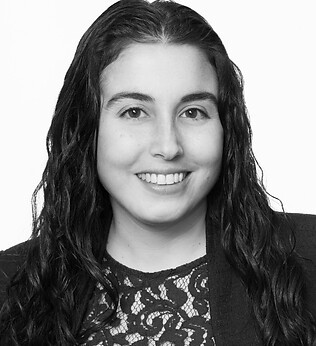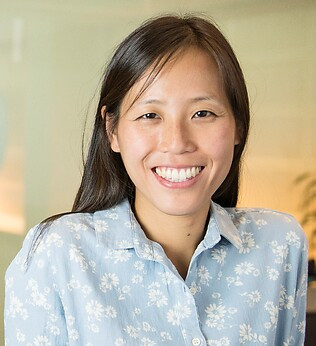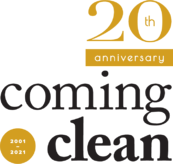March Spotlight: Natural Resources Defense Council
|
|
Natural Resources Defense Council (NRDC)Members: Dr. Yukyan Lam, Sara Imperiale, Dr. Kristi Pullen Fedinick, Dr. Veena Singla, Dr. Jennifer Sass, Jared Knicley, Margaret Brown, and Margie Kelly
|
|
|
About Natural Resources Defense Council
Natural Resources Defense Council (NRDC)works to safeguard the earth—its people, its plants and animals, and the natural systems on which all life depends. We combine the power of more than three million members and online activists with the expertise of some 700 scientists, lawyers, and policy advocates across the globe to ensure the rights of all people to the air, the water, and the wild. |
Our work with the Coming Clean NetworkNRDC works in partnership with Coming Clean and the Environmental Justice Health Alliance for Chemical Policy Reform (EJHA) on many joint initiatives by providing legal and scientific support to projects including the:
|


|
"For us, environmental justice also means that the way that you get to that vision is one that is inclusive, that lets people who are most impacted speak for themselves, drive the priorities, drive the strategies, and tell us, as we’re sitting here with this technical expertise or legal expertise, how we can most support their needs and priorities."— Yukyan Lam |
What vision of the world are you working towards? What has being a member of Coming Clean meant for your organization as you work for that change?
Yukyan: We know that we live in this world where the distribution of environmental threats is not equal, and there are definitely communities that live with an overburden of these cumulative environmental threats. So they’re not just facing sources of pollution from one factory; it’s not just one type of pollution. It’s multiple concurring environmental threats that they’re living with at the same time as these underlying conditions that make their health more susceptible to those very threats. We’re talking about things like low income status, maybe lack of healthcare, living in food deserts and things like that.
The vision of the world that I think we’re working towards is one where this is not the case. Where there’s not this inequality, there’s not this unequal distribution, there are not these hotspots of threats. In addition to trying to work towards that world, it’s not just about where we want to go, it’s also how we want to get there.
When did you or your organization first join Coming Clean? Did you know what you were getting into?
Sara: NRDC’s involvement definitely predates my time with the organization. In 2017 NRDC executed our memorandum of agreement (MOA) with EJHA, which took the relationship to a new level. It moved us beyond the place of holding 1-on-1 individualized relationships and connections with the network and prioritized moving that into an institutional relationship where the whole of NRDC was now making clear its commitment to working in a principled way with transparency and accountability. The MOA really demonstrates that we want to hold this relationship and grow this relationship over the long term and ensure that we’re doing all types of things equitably: sharing credit, building projects, and providing resources, financial or otherwise.
Has there been an accomplishment or favorite moment that you want to share?
Yukyan: Through Coming Clean’s network, NRDC has been able to work very closely with the Environmental Justice Health Alliance to bring more of the community voice, the community knowledge, and uplift that in these very traditional technical scientific spaces. For example, the American Public Health Association every year has this annual meeting: lots of experts, lots of scientists, professors, academics, researchers, all sorts. But what has been absent from those spaces are the very populations and the leaders from the communities that are studied by those “experts.”
It’s been a number of years that folks from EJHA have been saying to the APHA and these other research spaces, “Hey, where’s the community? Where’s the public in public health?” In 2019 we were able to work with EJHA to organize a day-long environmental justice townhall the day before the APHA annual meeting started. We had that be a big event with over 60 attendees, and the majority of them were community members, people who considered themselves working on the front lines of environmental justice. We really were able to get this dialogue and conversation going and talk about how it’s not just analysis that’s important; it’s how does analysis lead to actual change to actual policy.
Sara: One of my favorite memories came in the context of attending the annual Dollar General shareholder meeting, I believe in 2019 in Tennessee, sponsored by the Campaign for Healthier Solutions. While we were there our cohort went into the meeting and I had the pleasure of seeing Helga Garza who runs the Agricultura Network out in Albuquerque, New Mexico, approach the Dollar General CEO and say, “You should come to Albuquerque. You should come see what we have going on there and our capacity to support getting fresh, locally grown food into discount retail chains in that part of the world.” Watching Helga and the campaign in that moment single handedly make that meeting happen was really a pleasure to be around for.
20 years from now, imagine that pieces of our vision have been realized. What do you hope you’ll be able to say?
Sara: I’m imagining a world where our movement is equitably resourced, where we have just climate, agriculture, and chemical policies that we are all celebrating. I really hope that in looking back at the whole of our time together and at our work in the network that people will say that NRDC has been a good partner. The ultimate goal that I have stepping into new relationships and new spaces is leveraging whatever NRDC has to offer, whether that is legal support, technical support, grantmaking, consultants, whatever we can bring to the table, to really center and lift up the priorities of our partners, particularly our environmental justice partners.
"Participating in the Coming Clean network and working with Coming Clean and the Environmental Justice Health Alliance has really meant dedicated spaces to build and grow relationships with partners, both existing and new. Relationship-building spaces, especially in moments between policy and litigation inflection points, have helped ensure that we’re always moving together and working together for the long term and in a principled way, ready to act on opportunities when they emerge in the policy space, stepping forward together as a coalition and as partners who have already done the hard work of building trust."— Sara Imperiale
|




